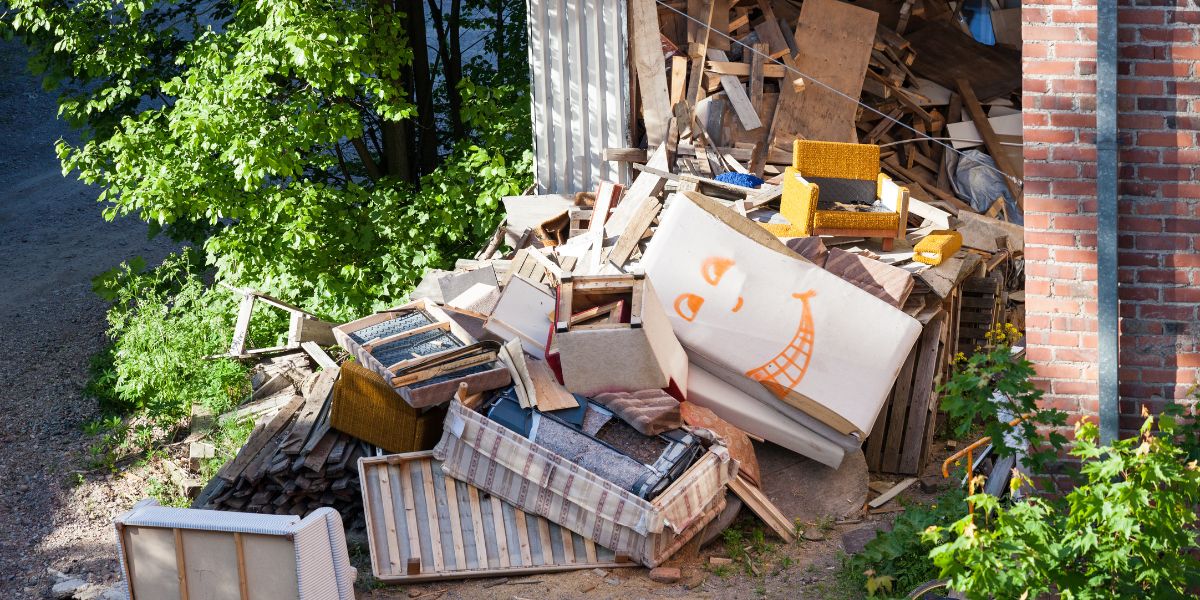Junk removal is the professional service of collecting, transporting, and disposing of unwanted materials from homes, offices, and other properties. These services help clear clutter, improve space, and ensure proper disposal or recycling of various items. Licensed junk removal companies follow local regulations to manage waste responsibly Junk Removal.
Types of Junk Removal Services
Residential Junk Removal
This service includes removing household items such as old furniture, appliances, electronics, yard waste, and renovation debris. Residential junk removal helps maintain a clean and safe living environment.
Commercial Junk Removal
Businesses use junk removal services to clear office equipment, construction waste, inventory clearance, and obsolete materials. Efficient commercial junk removal supports smooth operations and compliance with waste laws.
Construction Debris Removal
After construction or remodeling, junk removal experts collect materials like concrete, wood, metal, and drywall. Proper disposal prevents site hazards and prepares areas for further work.
Estate and Foreclosure Cleanouts
These services involve clearing all unwanted items from properties during estate sales, foreclosures, or relocations, providing a thorough cleanout.
Junk Removal Process
Professional junk removal follows a clear process:
- Assessment and Estimate:
Technicians evaluate the volume and type of junk to provide an accurate cost estimate. - Scheduling Pickup:
A convenient time is arranged for junk collection, often same-day or next-day service. - Loading:
The crew safely collects and loads junk onto trucks, minimizing disruption. - Disposal and Recycling:
Items are sorted for recycling, donation, or disposal following environmental regulations. - Cleanup:
The site is cleaned of debris to leave the area tidy.
Types of Items Commonly Removed
- Old furniture and mattresses
- Appliances such as refrigerators and washers
- Electronics and e-waste
- Yard waste and tree branches
- Construction and renovation debris
- Scrap metal and tires
- Boxes, paper, and plastics
Certain hazardous materials like chemicals, asbestos, and paint require special handling and are often excluded from regular junk removal.
Benefits of Professional Junk Removal
- Time-saving: Quick removal without physical effort by the property owner.
- Safety: Professionals handle heavy or bulky items safely.
- Proper Disposal: Compliance with local waste laws and recycling protocols.
- Space Improvement: Clears clutter to create usable space.
- Environmental Responsibility: Items are recycled or donated when possible.
Average Cost of Junk Removal Services
Costs depend on volume, item types, and location. Typical pricing models include:
| Service Type | Average Cost (USD) |
| Small load (pickup truck) | $100 – $300 |
| Medium load (small truck) | $300 – $600 |
| Large load (dump truck) | $600 – $1,200 |
Some companies charge by volume (per cubic yard) or by hourly labor.
Frequently Asked Questions (FAQ)
What items are not accepted in junk removal?
Hazardous materials such as chemicals, paints, batteries, and asbestos are usually excluded.
How fast can junk removal be scheduled?
Many companies offer same-day or next-day service depending on availability.
Is junk removal environmentally friendly?
Reputable services recycle, donate, or properly dispose of items to minimize landfill waste.
Do I need to sort items before junk removal?
Sorting is not always necessary; professionals handle sorting on-site.
Can junk removal help with hoarding cleanup?
Yes, many companies provide specialized hoarding cleanup services with sensitivity and care.
Conclusion
Junk removal services offer efficient and responsible solutions to clear unwanted materials from residential and commercial properties. These services involve assessment, pickup, and proper disposal or recycling. Using professional junk removal saves time, ensures safety, and supports environmental goals. Understanding the types of services, costs, and accepted items helps property owners select the right provider for their needs.

